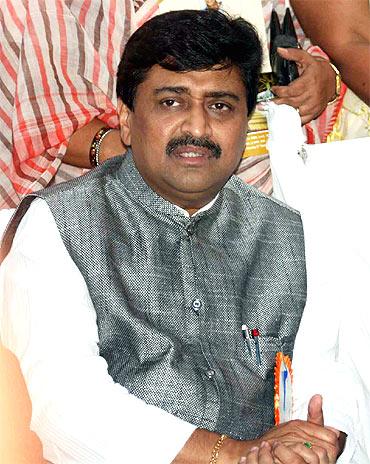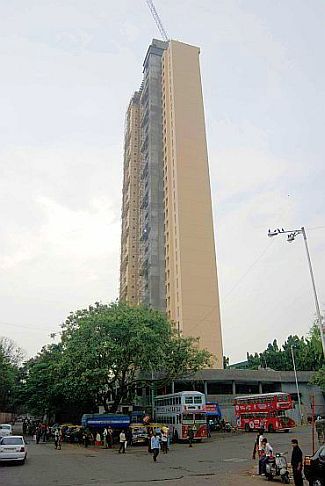
Former Maharashtra Chief Minister Ashok Chavan was among the 13 people figuring as accused in the FIR filed by the Central Bureau of Investigation on Saturday in connection with the Adarsh housing society scam which also names some retired senior Army officials.
The FIR, which was filed before a designated court on Saturday afternoon, names retired Lt General (retd) P K Rampal, Major Generals A R Kumar and T K Kaul, the then GoC-in-C, the then Principal Secretary (Urban Development) Ramanand Tiwari, who was recently suspended by Maharashtra government as Information Commissioner, official sources said.
The FIR, which was registered in the designated court of CBI, was handed over to special judge M R Aglawe in a sealed envelope.
The FIR, which has been filed under various sections of Indian Penal Code including criminal conspiracy, cheating, forgery and showing forged document as genuine besides sections pertaining to Prevention of Corruption Act, named Subash Lala, the then Principal Secretary to the Chief Minister and Brig (retd) R C Sharma as an accused, the sources said.
...

In a sketchy press note, the CBI said it registered a case related to Adarsh Cooperative Housing Society under various sections of IPC including criminal conspiracy, cheating, forgery and showing forged document as genuine besides sections pertaining to Prevention of Corruption Act.
"After completion of preliminary enquiry, case has been registered against 13 accused persons belonging to the army, the Defence Estate Office, Government of Maharashtra, public servants and unknown persons," the CBI said in a statement.
The CBI sources claimed that general secretary of the society R C Thakur, former Brigadier M M Wanchoo and Congress leader K L Gidwani were allegedly the main conspirators in building the society illegally.
Chavan had to quit as chief minister last year after it was found that among the members of the Adarsh society were his late mother-in-law and sister-in- law. He was the state revenue ,inister between 2001and 2003 and he had dealt with files pertaining to the ownership of the land. He is alleged to have recommended 40 per cent allotment of flats to civilians in the Adarsh Housing Society, which was meant for war widows and heroes of Kargil war.
The FIR also named Pradeep Vyas, the then collector of Mumbai between 2002-2005 who is alleged to have ratified 71 persons in the society of which several were ineligible members. His wife Seema Vyas is alleged to have a flat in the society.

The case was registered after the CBI last week received flak from the Bombay high court for its tardy probe in the case.
The CBI FIR names former Major General A R Kumar and Brigadier (retired) R C Sharma for allegedly giving a no objection certificate for allegedly claiming that the land did not belong to the Defence Ministry.
The agency had registered a preliminary enquiry into the scam in November last year. The decision to register a case was taken after seeking a legal opinion on the evidence which had favoured registering of a case against some people for allegedly forging the documents and abusing official position.
During hearing of a petition in the Adarsh case, a division bench of Justices B H Marlapalle and U D Salvi had asked CBI why it had not registered the case. "It has been more than two months since CBI has been conducting a preliminary inquiry into the case. Why have you (CBI) not registered FIR as yet," it had asked.
